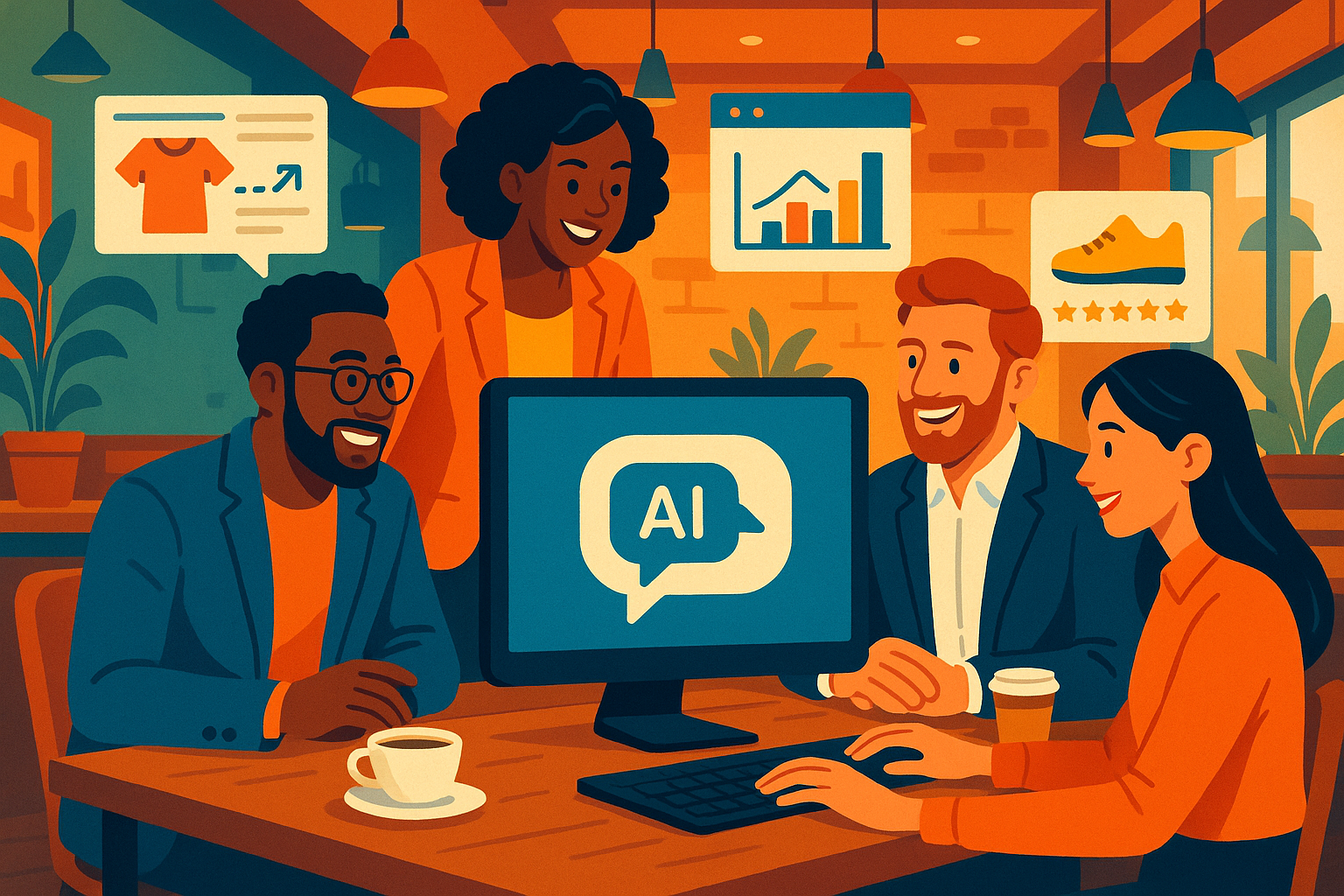Leveraging AI for Affordable, Engaging Customer Journeys

Introduction
In today's competitive market, businesses are constantly seeking innovative ways to enhance customer engagement and drive conversions. Enter artificial intelligence (AI), a game-changing technology that is revolutionizing customer journeys for organizations of every size. With the advent of no-code platforms and open-source tools, creating tailored customer experiences has never been more accessible or budget-friendly. This post explores the cost-effective strategies powered by AI that can elevate your customer interactions, citing real-world examples and offering practical insights that every business owner, marketer, and developer can leverage.
Cost-Effective AI-Driven Personalization Strategies
One of the primary advantages of modern AI technologies is the ability to personalize customer journeys without requiring extensive technical knowledge. No-code platforms have emerged as user-friendly solutions, allowing non-technical team members to configure sophisticated chatbot interactions. Tools like Chatfuel and ManyChat enable businesses to automate customer engagement effortlessly, often at little to no cost. Imagine a bakery that uses a chatbot to pre-order cakes for special occasions—it engages customers more personally and efficiently without burdensome costs.
In addition to no-code offerings, open-source solutions like Rasa for chatbots and Apache Superset for data analytics empower organizations to customize their systems in a way that tightly aligns with their needs. By reducing reliance on external vendors, businesses can minimize expenses while unleashing advanced capabilities. Consider a startup that utilizes Rasa to create a customer support chatbot—this can be developed cost-effectively, adapting as their business scales.
Furthermore, Customer Success Platforms (CSPs) such as Custify take AI-driven analytics to the next level. These platforms help firms map user journeys, identify pain points, and deliver hyper-personalized messaging in real time. Retailers can now ensure that their customers receive exactly the right offers based on their interactions, thus improving conversion rates even on modest budgets.
Visual elements are also proving pivotal; image recognition tools allow businesses to create personalized product recommendations through user-uploaded images. This kind of tailored engagement resonates deeply with consumers, elevating their experience. Integrating real-time feedback loops enhances these initiatives further—using AI to adapt and optimize touchpoints as customer behaviors evolve allows brands to stay relevant effortlessly.
Case Studies: AI Integration Driving Measurable Results
The impact of AI on customer engagement is tangible across various sectors. For instance, many Software as a Service (SaaS) companies now integrate CSPs for automating personalized onboarding and support. Reports indicate that such implementations drive higher conversion rates and boost customer satisfaction significantly. Clients of Custify, for example, have documented impressive improvements in upselling and retention metrics after adopting AI-driven outreach strategies.
E-commerce is another domain where AI excels. Leading retailers using AI chatbots for customer queries experience marked declines in ticket volumes and faster resolution times. Personalization engines that analyze a customer’s browsing and purchasing habits can effectively increase average order values by presenting well-timed cross-sell and upsell opportunities, creating a seamless shopping experience.
Additionally, the rise of visual search functionality—where shoppers find products based on images—exemplifies how AI drives deeper engagement. Retailers who adopt this technology report not only enhanced customer interactions but also impressive conversion rates.
Balancing Personalization, Data Privacy, and Compliance
As businesses embrace personalization, they must also remain vigilant about protecting customer data. The latest trends in personalization prioritize privacy and need to comply with regulations such as GDPR and CCPA. Brands must be transparent with their data practices, ensuring customers have control over their information. By embracing privacy-enhancing technologies, companies can build trust and deliver tailored experiences without compromising personal data security.
Ethical AI is another critical focus. Businesses should ensure that their AI tools are devoid of algorithmic bias, fostering an equitable landscape for customers. Not only does this approach enhance user trust, but it also aids in meeting current and upcoming regulatory requirements.
Emerging AI Technologies and Innovations (2023 Trend Highlights)
Looking ahead, several trends within AI are set to redefine customer journeys further. Conversational AI is rapidly advancing, allowing chatbots to understand natural language and analyze sentiment for more nuanced interactions. This progression results in smarter, empathetic conversations, heightening customer satisfaction.
Voice-enabled assistants are gaining traction, offering hands-free customer support and enhancing accessibility. These innovations allow businesses to engage with customers through voice commands, increasing convenience and personalization.
Predictive analytics has become a beacon of hope for businesses aiming to anticipate customer needs. Machine learning models help forecast relevant content, discounts, and interventions even before a customer realizes they need them. This proactive approach alleviates friction and can dramatically increase conversions.
The promise of hyper-personalization at scale is another exciting frontier. AI now allows companies to automate individualized experiences across various touchpoints, making tailored journeys financially feasible for small and medium enterprises alike.
Practical Tips for SMEs: Choosing and Implementing the Right AI Solutions
To harness the power of AI effectively, small and medium enterprises should start with clarity. Defining specific objectives—whether it's increasing conversions, reducing churn, or enhancing support—will guide your selection of tools. Begin with simpler no-code chatbot and analytics solutions, and as you see returns on investment, gradually introduce more complex options.
Integration is crucial; selecting platforms that easily connect with your existing website, CRM, and marketing tools ensures a holistic view of customer journeys. Continuously testing and iterating on AI-driven experiences will enable businesses to refine their approaches based on data-driven insights.
Finally, staying informed is vital. Following industry publications and expert opinions helps businesses leverage emerging AI capabilities while remaining compliant with evolving regulations. An informed approach ensures that enhancements in customer experiences are both innovative and responsible.
Conclusion
The landscape of customer engagement is rapidly evolving, and with AI technologies, businesses can now affordably create personalized customer journeys that resonate. By embracing these strategies and insights, organizations can not only meet customer expectations but exceed them, fostering loyalty and driving growth.
For business leaders looking to elevate their customer engagement game, partnering with Untap as your AI solution provider can streamline your efforts, harnessing the full potential of intelligent, customer-focused technologies for measurable results.